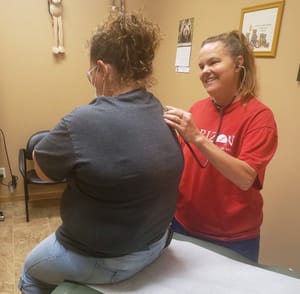The U.S. Supreme Court is weighing a case involving medication abortion that could change the way some South Dakota women access abortion services by crossing the border into neighboring states.
Watching closely is South Dakota Attorney General Marty Jackley, who has joined other state AGs in saying that relaxed federal regulation of abortion pills makes it tougher for states to enforce their own laws.
The Supreme Court's first abortion-related case since overturning Roe v. Wade in 2022 involves the Food and Drug Administration’s oversight of mifepristone, the primary drug used for medication abortions.
A consortium of anti-abortion doctors and groups sued the FDA over policy changes that removed the requirement that women visit doctors in person to obtain mifepristone. The policy shifts, expanded during the pandemic and made permanent in 2021, allowed patients to obtain a prescription through telemedicine and receive the pills in the mail.
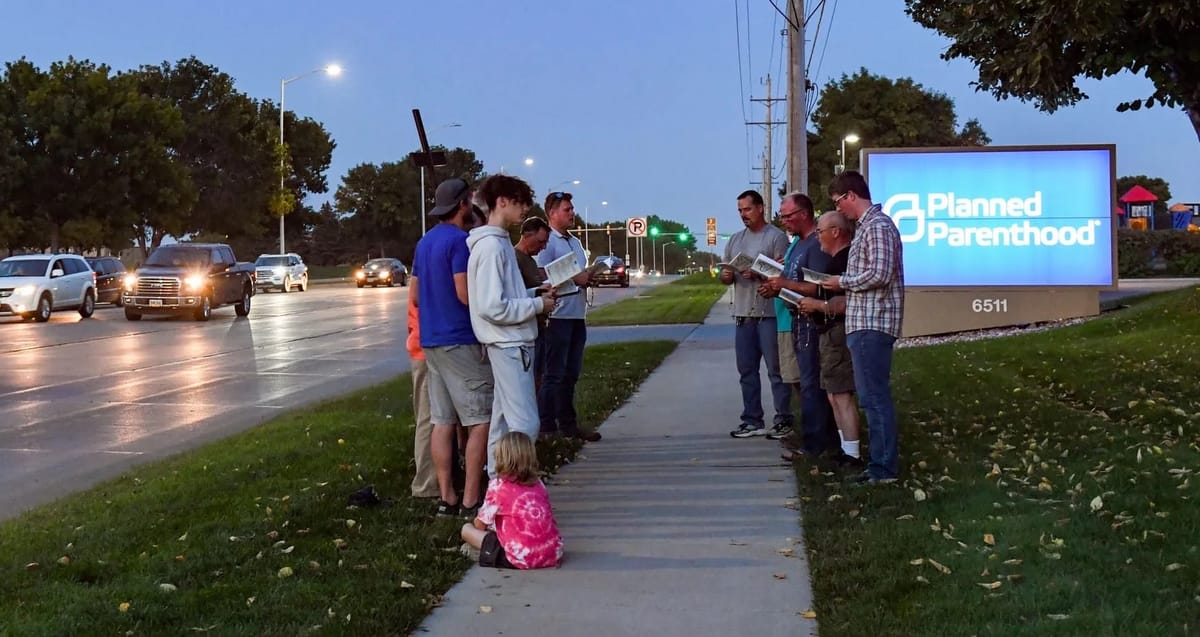
That’s how Julie Amaon, M.D., medical director of Just the Pill, a Twin Cities telemedicine provider, has assisted nearly 170 South Dakota residents with online consultations and prescriptions to terminate pregnancies since the Supreme Court’s Dobbs decision overturned Roe and left abortion up to the states.
South Dakota’s near-total abortion ban makes it one of the states Just the Pill has focused upon. The organization has provided service to more than 7,500 patients overall since starting as a nonprofit in 2020.
The states with the most patients served by Just the Pill in Minnesota in 2023 were Wisconsin (143), Iowa (105) and South Dakota (86).
Just the Pill also has a mobile clinic that can be used to dispense pills in person or perform abortion procedures, potentially expanding options for patients if the Supreme Court shuts down mail-order mifepristone.
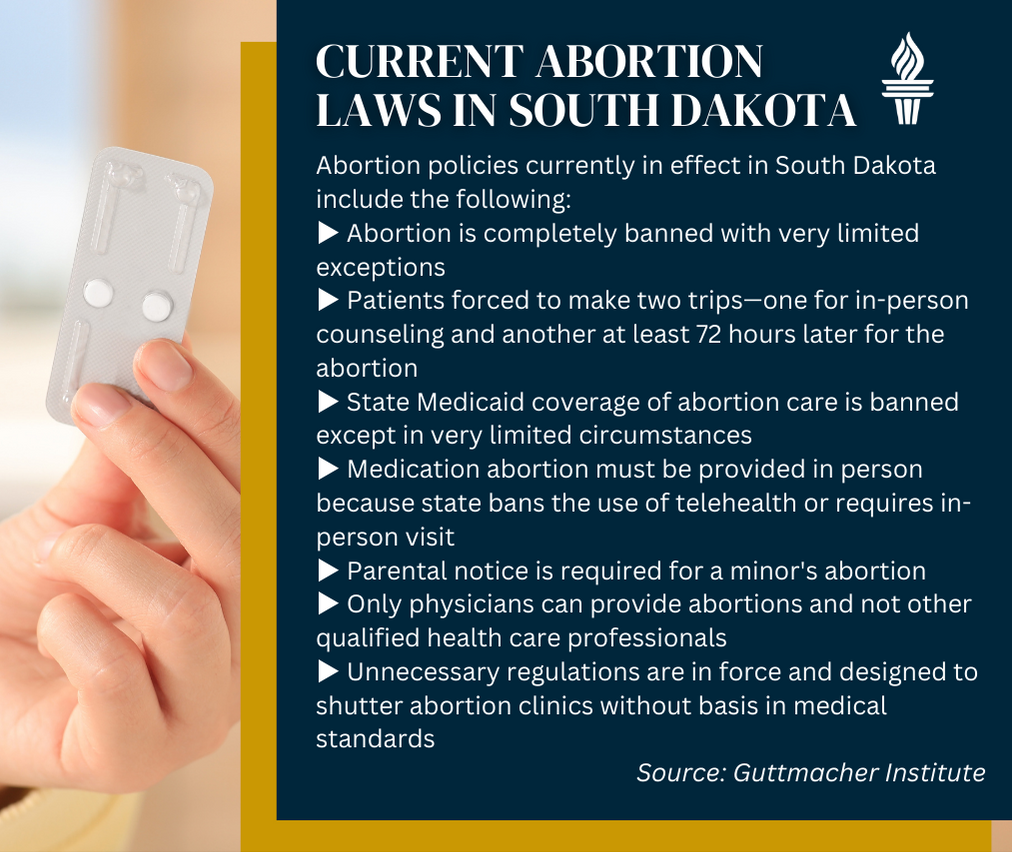
The mobile clinic has been used in Minnesota and Colorado but has occasionally been the target of threats from anti-abortion groups, according to Amaon.
"Our main concern with the mobile clinic is the safety and security of our patients and staff," she said. "We have had a really hard time finding places where it is safe to park, so we are still in the process of evaluating that."
Jackley, other states: 'Lawbreaking on a mass scale'
South Dakota’s abortion law makes it a Class 6 felony for anyone “who administers to any pregnant female or prescribes or procures for any pregnant female” a means for an abortion, except to save the life of the mother. The crime is punishable by two years in prison, a $4,000 fine or both.
South Dakota joined 21 other states in supporting the plaintiffs in the Supreme Court's mifepristone case, with Jackley signing an amicus brief outlining how the relaxed FDA policies are "encouraging lawbreaking on a mass scale."
"The whole point of the Administration’s recent actions is to encourage and achieve evasion of (abortion-related) state laws," the brief read. "States are thus entitled to enforce their laws ... against persons and businesses involved in distributing or receiving abortion drugs by mail."

Without the Supreme Court overturning the FDA's policies, it's not clear what authority Jackley would have to prosecute actions that occur in a state where abortion is legal but still involves South Dakota citizens.
Minnesota passed a law in 2023 to strengthen abortion rights, establishing that “every individual has a fundamental right to make autonomous decisions about the individual’s own reproductive health.”
Jackley told News Watch in 2023 that his office considers it a violation of South Dakota law if abortion medications are mailed to a South Dakota address. That means Just the Pill’s practice of dispensing pills in the state where they were prescribed would not be deemed illegal under current state and federal mandates.
Still, the interstate peddling of reproductive health services is an evolving and contentious issue, with enough legal gray area to keep everyone on their toes.
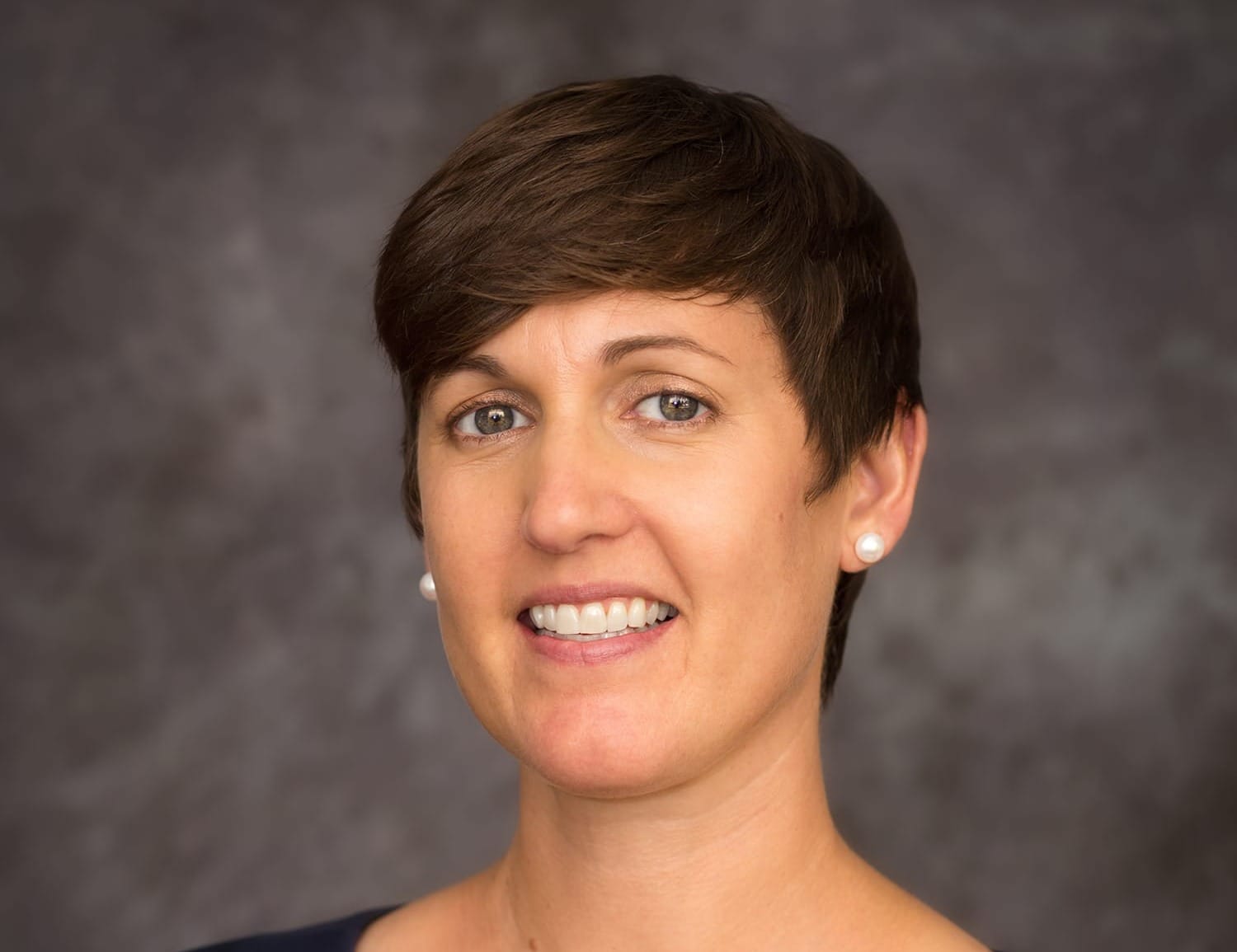
When asked April 2 if his office has had any interactions with Just the Pill concerning its practice of providing prescriptions and mailed delivery of abortion pills to South Dakota residents, Jackley responded: "It is generally the policy of this office to not comment regarding any potential or ongoing investigations/prosecutions."
Amaon told News Watch that her organization has not been contacted by the South Dakota Attorney General's office.
Just the Pill uses online pharmacies
Amaon grew up in Texas and took early notice of the volatility surrounding abortion access in the heavily Republican state.
After managing a Planned Parenthood clinic in the early 2000s, she decided she could make more of an impact as a doctor, so she started medical school at age 35 and earned her degree in 2017 from American University of Antigua.
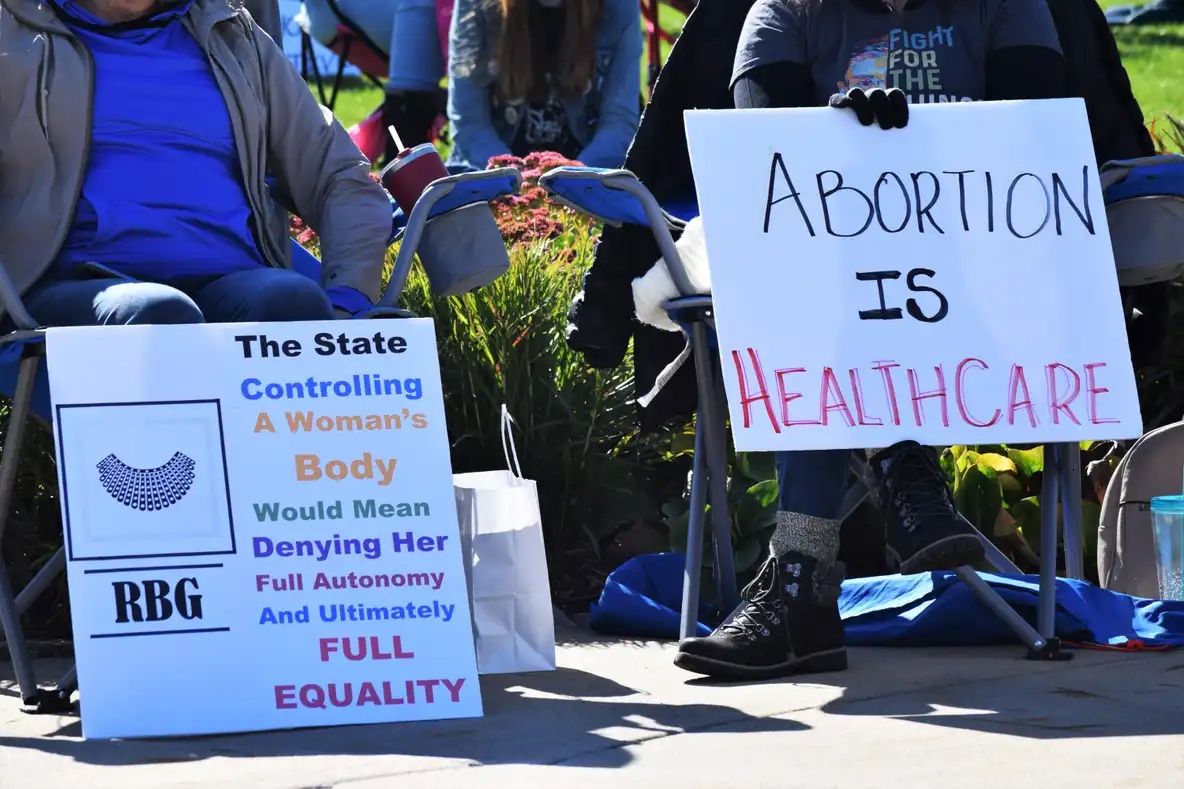
Amaon’s residency was in reproductive health education at the University of Minnesota Medical Center, which led to a role as Just the Pill’s medical director in July 2020.
The plan was to use mobile clinics to provide in-person services to rural patients or those from states that heavily restrict abortion. But when the FDA allowed the mailing of abortion pills due to the pandemic, the group pivoted to providing telemedicine and mail-order services.
Medication abortion accounts for more than half of all abortions in the United States, according to the Guttmacher Institute, a reproductive health organization.
Charging $350 per patient, Just the Pill utilizes online pharmacies such as American Mail Order out of Michigan and Honeybee Health out of California.
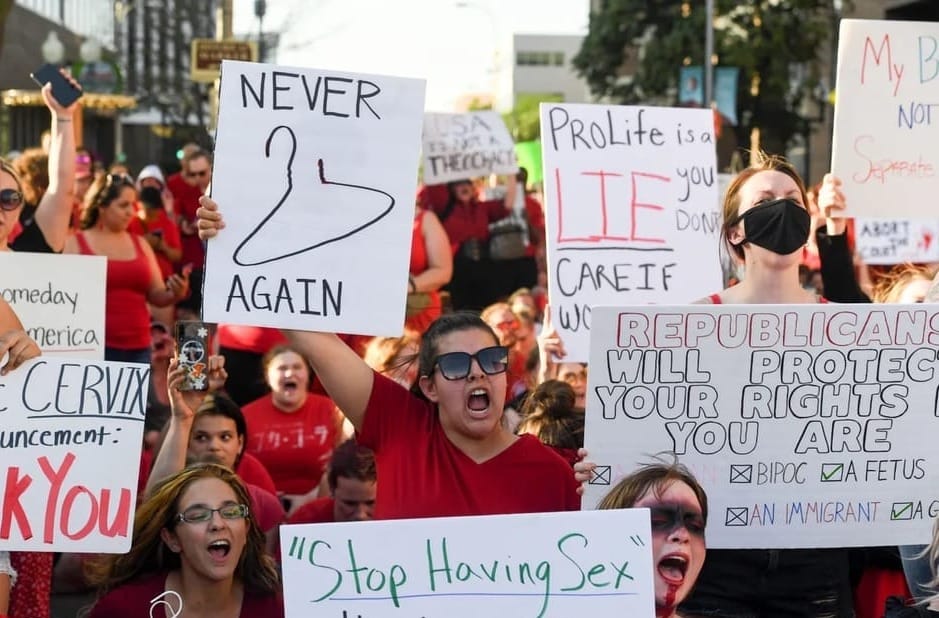
"To access services, a patient from South Dakota would drive to Minnesota and have a phone visit with a clinician that lasts about 15 to 20 minutes," said Amaon, adding that some states require video calls. "Then we would mail their medications to either a FedEx pickup spot or general delivery at the post office, whatever works best for them."
A telehealth follow-up occurs within two weeks to check on the patient and “make sure everything went as expected," Amaon said. "We also reach out at four to five weeks for a pregnancy test at home, to make sure the process is complete.”
Two-pill regimen more effective
Amaon said that if mifepristone access is restricted, Just the Pill could use a one-pill regimen to terminate pregnancies.
Medication abortion typically involves two pills. The first drug, mifepristone, works by blocking the hormone progesterone, which the body needs to continue a pregnancy. That process causes the uterine lining to stop thickening and break down, detaching the embryo. The second drug, misoprostol, taken 24 to 48 hours later, causes the uterus to contract and dilates the cervix, which expels the embryo.
A misoprostol-only regimen involves taking the drug with the same dosage as typically used, then taking it again three hours later, causing the uterus to contract. This process is repeated for three separate doses, three hours apart, until the pregnancy is terminated, Amaon said.
“Because you have to take it more times, the side effects are not fun,” she added. “You might feel like you have the flu, there are some fever and chills, sometimes nausea, vomiting, diarrhea. Other than that, it’s very safe and effective. There are no greater risk factors or complications because you’re only taking misoprostol.”
There is a slight difference in effectiveness, with 95%-98% of abortions successful with the two-drug regimen compared with 85% with misoprostol only, according to Just the Pill's website. The two-pill regimen is recommended by the American College of Obstetricians and Gynecologists.
Safety of abortion pills debated
The Supreme Court’s ruling in the mifepristone case is not expected until at least June. Most of the analysis after the March 26 hearing focused on skepticism even from conservative justices on the need for sweeping reversals of FDA policy and the lack of legal standing among the group of doctors who brought the suit.
"This case seems like a prime example of turning what could be a small lawsuit into a nationwide, legislative assembly on an FDA rule or any other government action," Justice Neil Gorsuch, who was appointed by Donald Trump, said during the hearing.
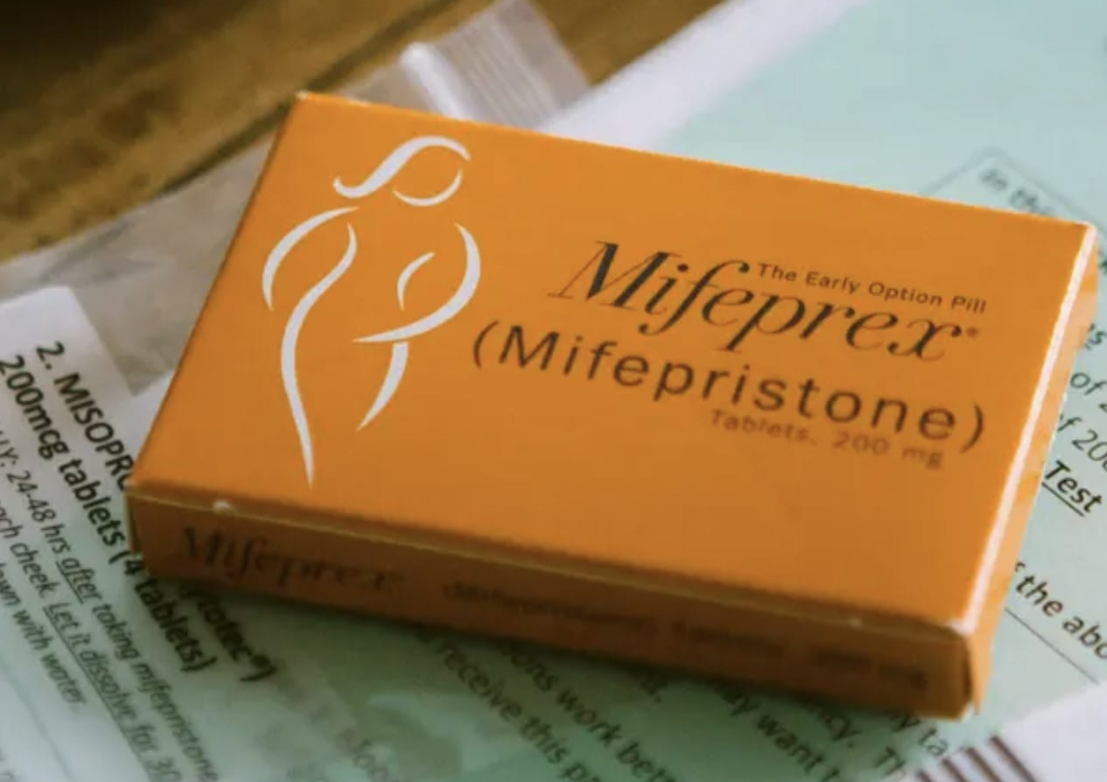
Jackley and South Dakota Gov. Kristi Noem have been outspoken about safety concerns with medication abortion. They point out that, if something goes wrong, such as excess bleeding or infection, there won’t be emergency medical care available if a woman is taking the pills at home.
Criminal charges against the person who helped procure the pills could be “much more serious” than a Class 6 felony if a woman suffers harm from taking the medication to end a pregnancy, Jackley said.
He joined 19 other attorneys general in signing a letter last year from Missouri Attorney General Andrew Bailey that raised the possibility of coerced abortions occurring with less oversight. The letter also cited a 2015 study that found medication abortions were “5.96 times as likely to result in a complication as first-trimester aspiration abortions.”
But Amaon pointed to a study published in the Lancet Regional Health medical journal in 2022 that found a 98% success rate in ending pregnancy for women who accessed abortion pills through a telehealth provider, with the same percentage of patients saying they were satisfied with the experience.
CVS, Walgreens to sell abortion pills
In early March, the nation's two largest pharmacy chains – CVS and Walgreens – announced that they have received certification to begin dispensing mifepristone in states where abortion is legal, in stores rather than by mail order.
The move came after Jackley and the other attorneys general signed the Missouri AG's letter to CVS and Walgreens citing the Comstock Act of 1873, which the letter said prohibits using the mail to send or receive any drug that will be “used or applied for producing abortion.”
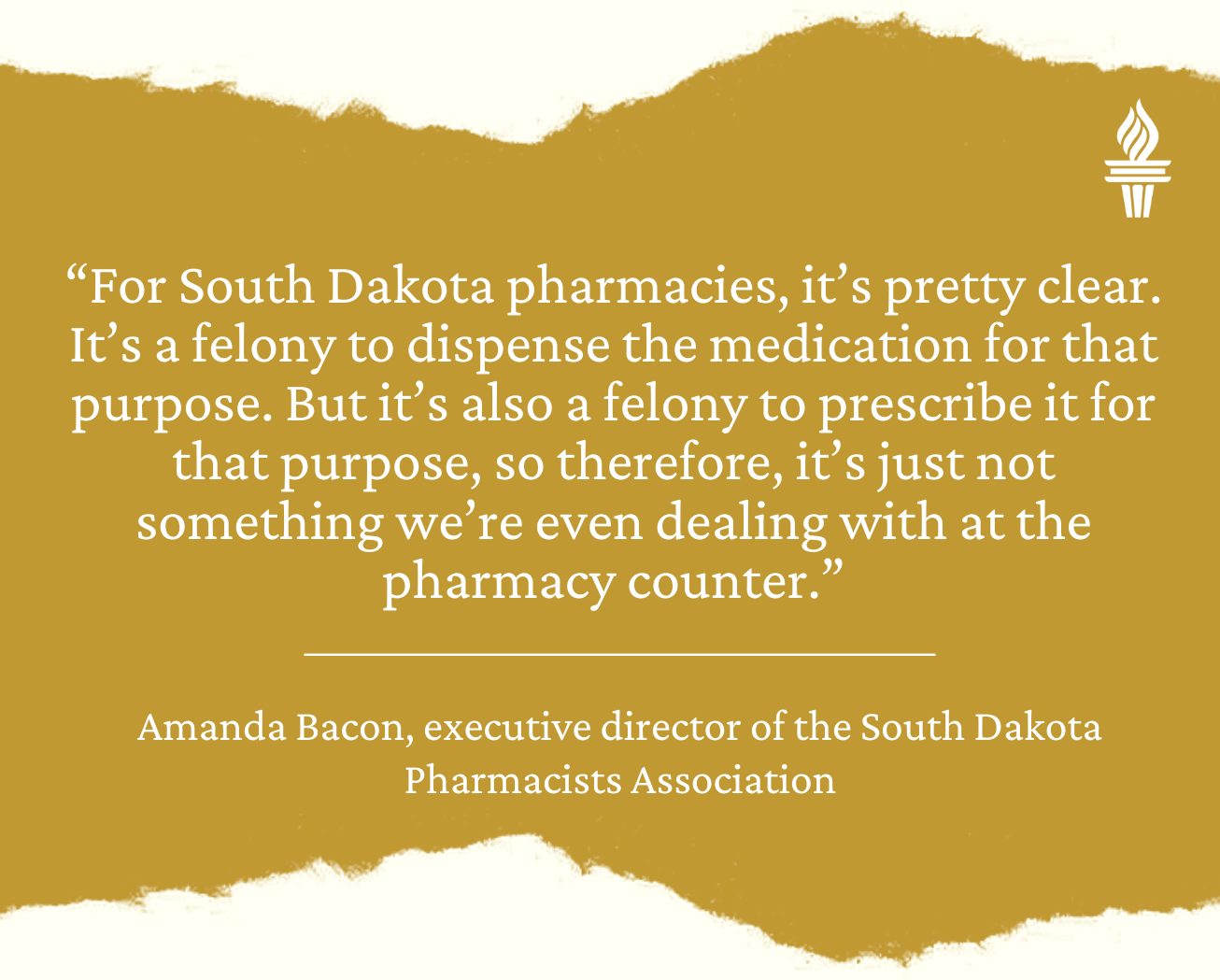
President Joe Biden called the pharmacies' announcement "an important milestone in ensuring access to mifepristone" and encouraged "all pharmacies that want to pursue this option to seek certification."
Amanda Bacon, executive director of the South Dakota Pharmacists Association, told News Watch that retail chains have stated “they will only participate in the federal program where it doesn’t conflict with state law,” which means none of them will be procuring or dispensing the drug in South Dakota.
“For South Dakota pharmacies, it’s pretty clear,” Bacon said. “It’s a felony to dispense the medication for that purpose. But it’s also a felony to prescribe it for that purpose, so therefore, it’s just not something we’re even dealing with at the pharmacy counter.”
The abortion issue could be left up to South Dakota voters this November. A proposed 2024 ballot amendment would enshrine abortion rights in the South Dakota Constitution by following the trimester framework of Roe v. Wade.
Even if the abortion measure passes, it's not clear how soon or how widespread reproductive services would be offered in the state, said Amaon.
"Just because their ban is gone (with passage) doesn't mean that South Dakotans don't still need help," said Amaon. "There are no clinics in South Dakota, and people will need access to services. So, yes, it would still be a priority for us to provide assistance."
Contact Stu Whitney at stu.whitney@sdnewswatch.org.




